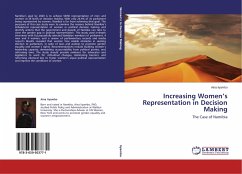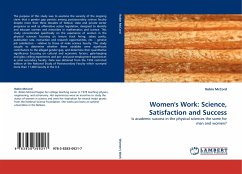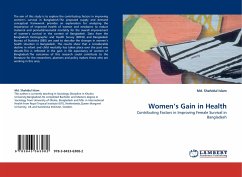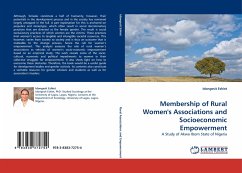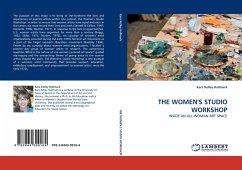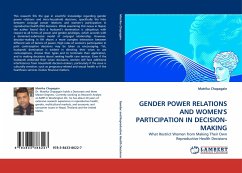
GENDER POWER RELATIONS AND WOMEN''S PARTICIPATION IN DECISION-MAKING
What Restrict Women from Making Their Own Reproductive Health Decisions
Versandkostenfrei!
Versandfertig in 6-10 Tagen
45,99 €
inkl. MwSt.

PAYBACK Punkte
23 °P sammeln!
This research fills the gap in scientific knowledge regarding gender power relations and intra-household decisions, specifically the links between conjugal power relations and women's participation in reproductive health (RH) decisions. While examining this nexus in Nepal, the author found that a husband's domination is ubiquitous with respect to all forms of power and gender privileges, which accords with a dominant-submissive model of conjugal relationship. However, decision-making in RH shows a more complex interaction between different sets of factors of power. High rates of women's partic...
This research fills the gap in scientific knowledge regarding gender power relations and intra-household decisions, specifically the links between conjugal power relations and women's participation in reproductive health (RH) decisions. While examining this nexus in Nepal, the author found that a husband's domination is ubiquitous with respect to all forms of power and gender privileges, which accords with a dominant-submissive model of conjugal relationship. However, decision-making in RH shows a more complex interaction between different sets of factors of power. High rates of women's participation in joint contraceptive decisions may be taken as encouraging. Yet, husbands' domination is evident in directing their wives to use contraceptives, choose their types and to terminate their application, and in making decisions about seeking health care services. Even if the husbands endorsed their wives' decisions, women still face additional interferences from household decision-makers, particularly if the issue is culturally sensitive, such as pregnancy-related and sexual health or if the healthcare services involve financial matters.




